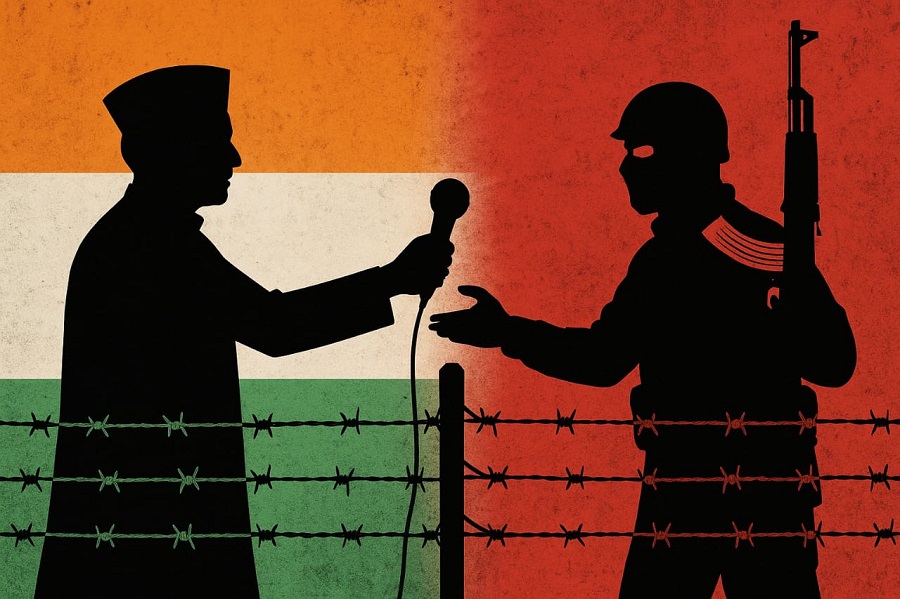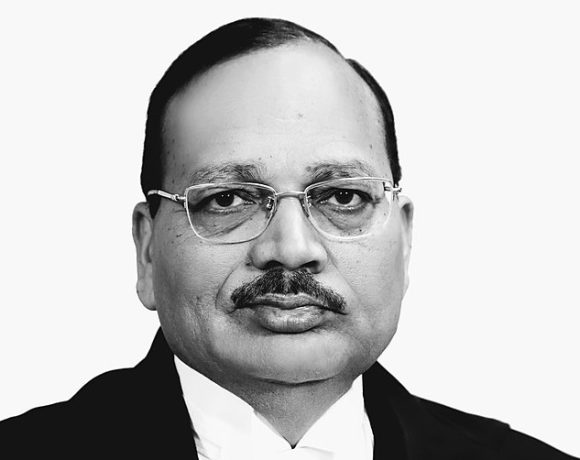
When Hatred Becomes Treason: How India’s Opposition is Empowering the Enemy
In any vibrant democracy, dissent is not just tolerated — it is necessary. But when that dissent transforms into an unhinged hatred that weakens the nation and strengthens its enemies, it crosses the line from political disagreement into active betrayal. After the blood of innocents soaked the soil of Pahalgam, a time when the country needed to speak in one voice against terror, several opposition leaders and so-called intellectuals instead found their moment to attack India itself — and Pakistan could not have been more thrilled.
While families buried their dead and soldiers hunted down the cowards responsible, some of India’s own elected representatives and public figures took it upon themselves to sabotage the national mood. Not with bombs or bullets, but with words — words that were quickly picked up, amplified, and weaponized by Pakistani media to spin the Pahalgam tragedy as an Indian conspiracy.
A Nation Mourns, the Opposition Betrays
In any civilized nation, after an act of terrorism, political divides are set aside. In India, however, the opposition saw the Pahalgam bloodbath not as a call to unity but as an opportunity to score cheap political points. They showed that for them, hatred for Narendra Modi — or perhaps hatred for the very idea of a strong India — matters more than the lives of ordinary citizens.
Leading the charge was Sanjay Raut, the eternal loudmouth of Shiv Sena (UBT), who wasted no time in blaming the BJP for “creating hatred” that supposedly led to the attack. According to him, terrorists with guns were apparently moved by domestic political narratives rather than by decades of radicalization and Pakistani state sponsorship. His reckless commentary was lapped up by Pakistani outlets like Geo TV and ARY News, who broadcast Raut’s drivel as proof that even Indians admit their own “communal hatred” fuels terror.
Not to be outdone, Siddaramaiah, the Chief Minister of Karnataka, decided that national security was less important than virtue-signaling pacifism. He sermonized that “there is no need for war” with Pakistan, implying moral equivalence between the attacker and the attacked. Predictably, Pakistani anchors played clips of his statement on repeat to paint India as a nation internally conflicted about blaming Pakistan.
Then came the self-appointed guardians of moral grandstanding. Swami Avimukteshwaranand Saraswati, the Shankaracharya of Jyotishpeeth, instead of demanding a firm response against Pakistan, questioned the Indian Government’s decision to suspend the Indus Waters Treaty. He sermonized about how India should not “stop water” to Pakistan because it would go against “dharma” and “humanitarian principles.”
As if Pakistan sending bullets was humanitarian. Pakistani media gleefully amplified his sermons as divine endorsement, portraying India’s strategic retaliation as unjust and immoral. In one stroke, a religious figure managed to undermine India’s most potent non-violent weapon and gift Pakistan a massive PR victory.
Adding further fuel to the fire was Neha Singh Rathore, a Bhojpuri folk singer and professional grievance artist, who accused the Modi government of plotting to “politically exploit” the tragedy — a remark celebrated by Pakistani YouTube channels and news agencies as confirmation that India manufactures terror attacks for election mileage.
And it didn’t stop there. Sharad Pawar, the self-declared statesman, warned India against “hasty retaliation” and suggested that the Pahalgam attack exposed “security lapses” post-Article 370 abrogation — a direct validation of Pakistan’s claim that Kashmiris are suffering under Indian rule.
Akhilesh Yadav whined about “intelligence failure,” a narrative gleefully echoed by Pakistani commentators to undermine Indian security forces.
TB Thimmapur, a Karnataka Congress Minister, claimed that the terrorists “did not ask religion” before killing — despite eyewitness accounts saying otherwise. His statement was used by Pakistan to argue that India is lying to communalize the attack.
Anil Deshmukh, yet another voice from the political wasteland, parroted similar nonsense.
When Hatred Crosses the Line Into Sedition
There is a profound and critical difference between criticizing the government and sabotaging the nation. Criticism is the duty of the opposition. But when your words are indistinguishable from enemy propaganda, when your statements weaken your country’s case in the international arena, when your speeches give cover to terror states — you are not dissenting. You are betraying.
After every terror attack, a predictable script plays out: Pakistan denies involvement, and Indian opposition leaders — knowingly or unknowingly — validate their lies. This isn’t politics anymore. It’s sedition in the 21st century — narrative terrorism, carried out by people who should be sitting in Parliament, not prison cells.
The Cost of This Betrayal
Every time Raut opens his mouth to blame the BJP for jihadist terror, a Pakistani news anchor smiles. Every time Siddaramaiah speaks of “avoiding war,” a terrorist recruiter in Peshawar finds new confidence. Every time Swami Avimukteshwaranand lectures about “dharma” over national security, an ISI official laughs at India’s naivety.
This isn’t harmless political banter. It demoralizes our soldiers, emboldens our enemies, weakens our diplomatic standing, and normalizes treachery under the excuse of free speech.
Time for Hard Questions — and Harder Laws
India must ask itself: how much more tolerance for this treachery can a democracy afford?
It is time to stop hiding behind the fig leaf of “secularism” or “freedom of expression” when it comes to national security.
There must be legal accountability.
There must be political accountability.
And most importantly, there must be societal rejection of those who place their hatred for the government above their duty to the nation.
The line between dissent and betrayal is clear. It is written in the blood of the martyrs of Pahalgam.
Conclusion
When bullets kill our bodies, we know the enemy.
When words kill our spirit, we mistake them for our own.
But make no mistake: those who, in the aftermath of terror, choose to amplify the enemy’s narrative are enemies themselves — dressed not in camouflage, but in khadi, robes, and blue-ticked self-righteousness.
Hatred against a government must never mutate into hatred against the nation.
A true patriot opposes policies when wrong — but never assists the enemy when the nation bleeds.
Those who cannot see the difference must be shamed, isolated, and if necessary, judged by the laws of treason — not celebrated in prime-time studios.
History will not forgive these traitors. And neither should we.


















